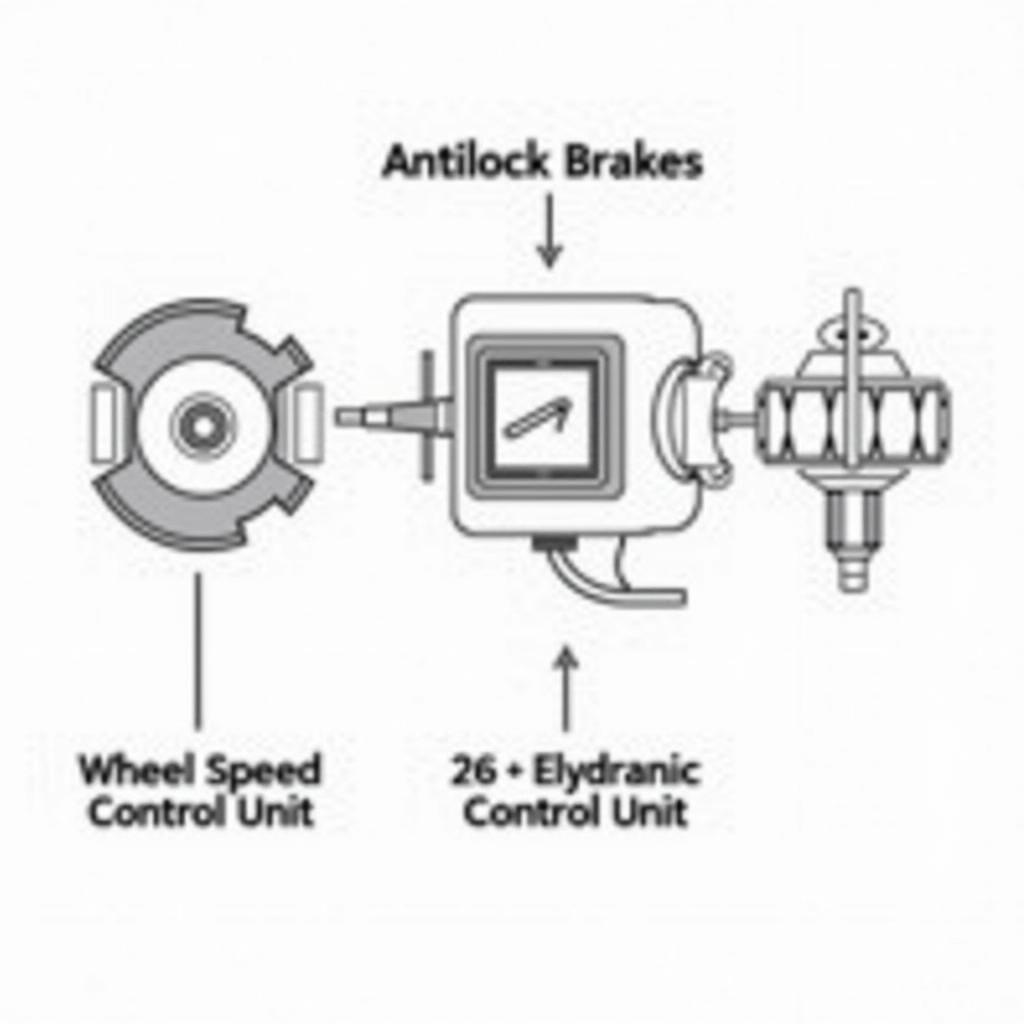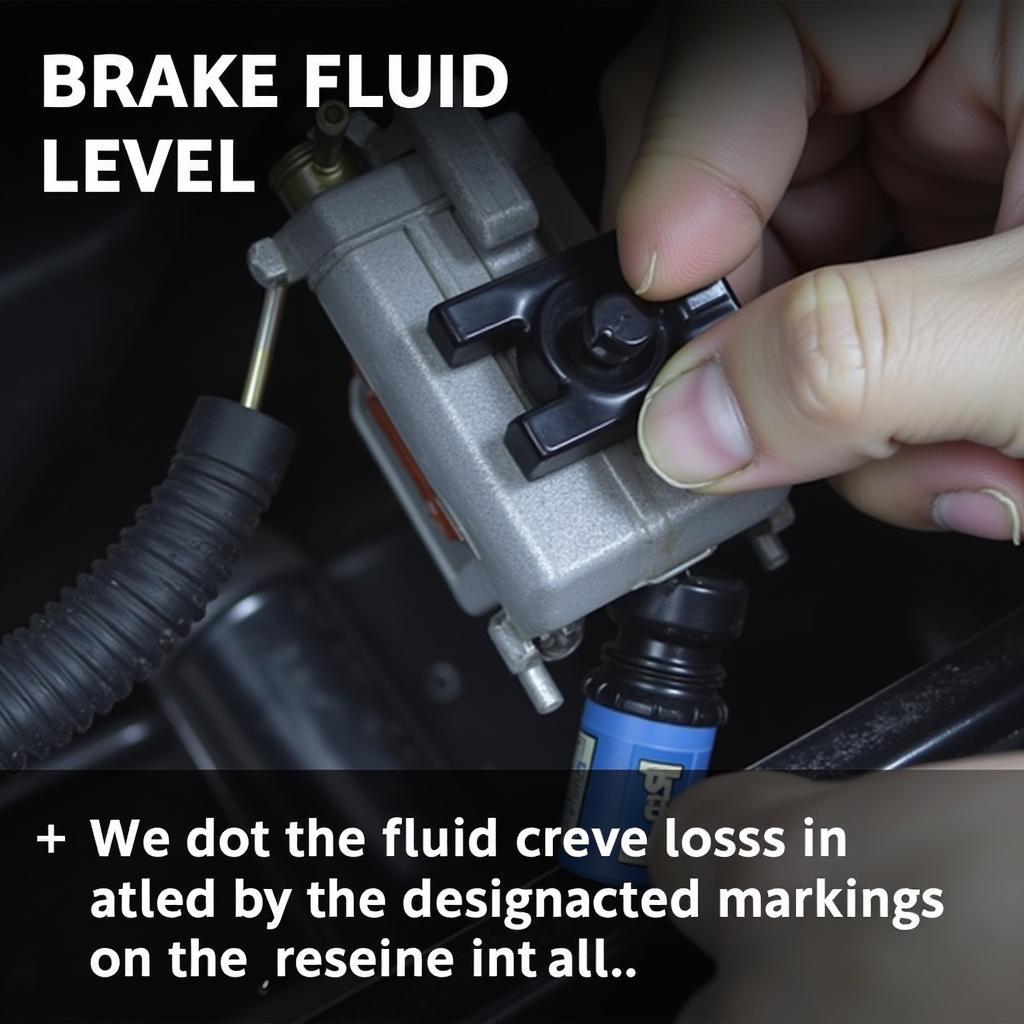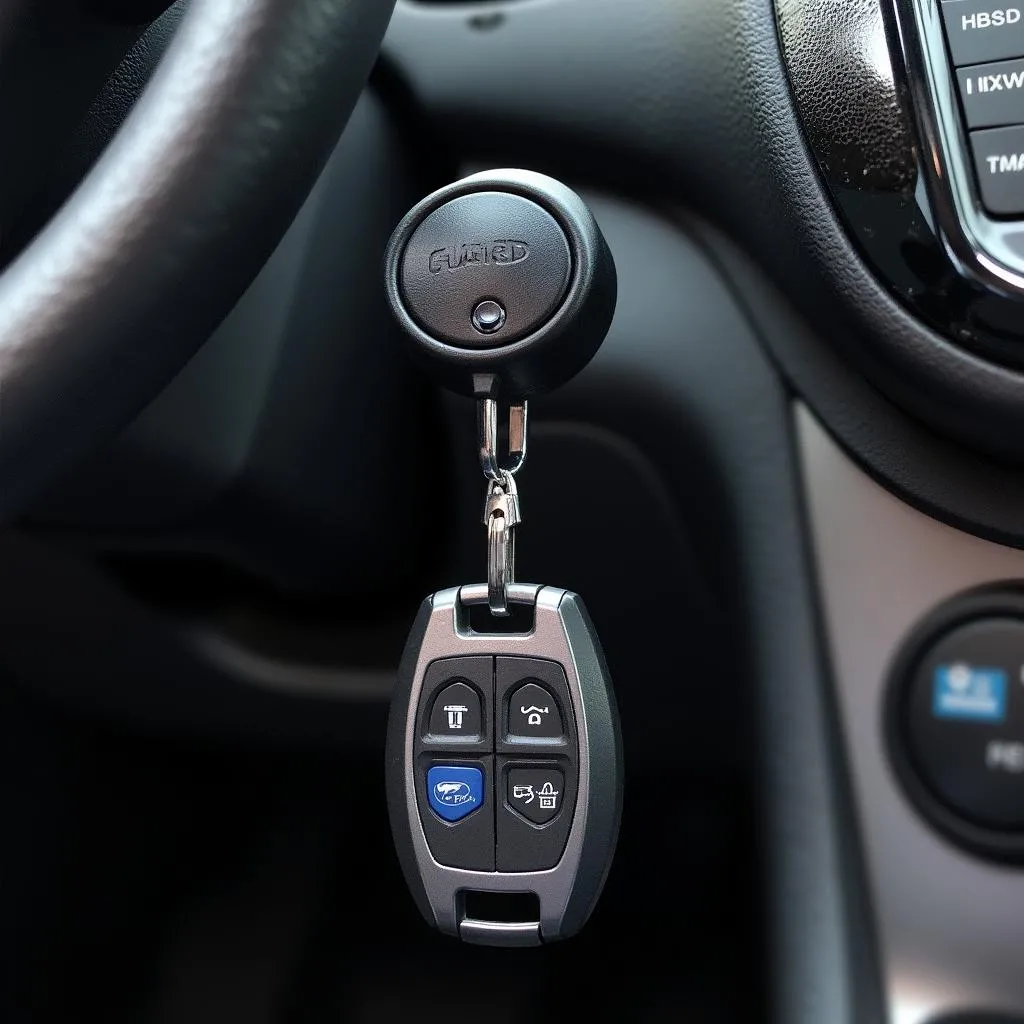The antilock brake system (ABS) is a crucial safety feature in your vehicle, designed to prevent wheel lockup during hard braking. When functioning correctly, ABS helps you maintain steering control and reduces stopping distances. However, if your ABS warning light illuminates on your dashboard, it indicates a potential problem within the system that requires attention.
Let’s delve into some of the most common causes behind an illuminated ABS warning light.
Understanding the ABS System
Before we explore the reasons for the warning light, it’s helpful to have a basic understanding of how ABS works.
- Wheel Speed Sensors: These sensors, typically located at each wheel, constantly monitor the rotational speed of your wheels.
- Electronic Control Unit (ECU): The heart of the system, the ECU receives data from the wheel speed sensors. If it detects an impending wheel lockup during braking, it takes over.
- Hydraulic Control Unit: This unit regulates the brake fluid pressure to each wheel based on instructions from the ECU.
 ABS System Components
ABS System Components
Now, let’s explore why your ABS warning light might be on.
Common Culprits Behind the ABS Warning Light
1. Malfunctioning Wheel Speed Sensors
Wheel speed sensors are often the primary culprits behind ABS issues. These sensors can fail due to:
- Accumulation of dirt, debris, or brake dust: Obstructions on the sensor can disrupt its ability to read wheel speed accurately.
- Physical damage: Impact from road debris or even a worn-out wheel bearing can damage the sensor.
- Wiring issues: Frayed or corroded wires connecting the sensor to the ECU can interrupt signal transmission.
Expert Insight: “In my experience, a faulty wheel speed sensor is the most frequent cause of an ABS warning light. It’s always the first thing I check when diagnosing these issues.” – John Miller, Senior Automotive Diagnostician
2. Low Brake Fluid Level
Your ABS system relies on adequate brake fluid pressure to function correctly. Low brake fluid, often due to a leak in the system, can trigger the warning light.
- Check Your Brake Fluid: Open the hood and locate the brake fluid reservoir. Ensure the fluid level is within the recommended range marked on the reservoir.
- Look for Leaks: Inspect the area around the master cylinder, brake lines, and calipers for any signs of fluid leakage.
 Checking Brake Fluid
Checking Brake Fluid
Important: If you suspect a brake fluid leak, it’s crucial to address this issue immediately as it poses a serious safety hazard.
3. Faulty ABS Control Module
The ABS control module, responsible for processing sensor data and regulating the system, can also malfunction.
- Electrical Problems: Short circuits, blown fuses, or internal component failures can disrupt the module’s operation.
- Software Glitches: In some cases, a software glitch within the module can cause erratic behavior and trigger the warning light.
Diagnosing and repairing control module issues often require specialized equipment and expertise.
4. Issues with the Hydraulic Control Unit
While less common, problems with the hydraulic control unit, such as internal valve failures or leaks, can also activate the ABS warning light. These issues often require professional attention.
What to Do When Your ABS Light Turns On
- Don’t Panic: While the ABS light indicates a potential issue, your regular braking system should still function.
- Exercise Caution: Avoid hard braking or sudden maneuvers, as the ABS might not engage as intended.
- Schedule an Inspection: Bring your vehicle to a qualified mechanic specializing in automotive diagnostics to identify and address the root cause of the problem.
Conclusion
The ABS warning light serves as an essential reminder of the critical role this safety system plays in your vehicle. Addressing the underlying causes of an illuminated warning light promptly ensures the continued effectiveness of your ABS, providing you with added safety and control on the road.
Remember: Regularly scheduled maintenance, including brake inspections and fluid flushes, can help prevent many ABS-related issues.
Frequently Asked Questions
Q1: Can I continue driving with the ABS light on?
A: While your regular brakes should still work, it’s crucial to have the issue diagnosed and repaired promptly to ensure optimal braking performance and safety.
Q2: How much does it cost to fix an ABS problem?
A: The cost can vary significantly depending on the underlying cause, ranging from a simple sensor replacement to a more involved control module repair.
Q3: Can I check the ABS system myself?
A: While you can visually inspect for obvious issues like low brake fluid, diagnosing ABS problems often requires specialized tools and expertise.

